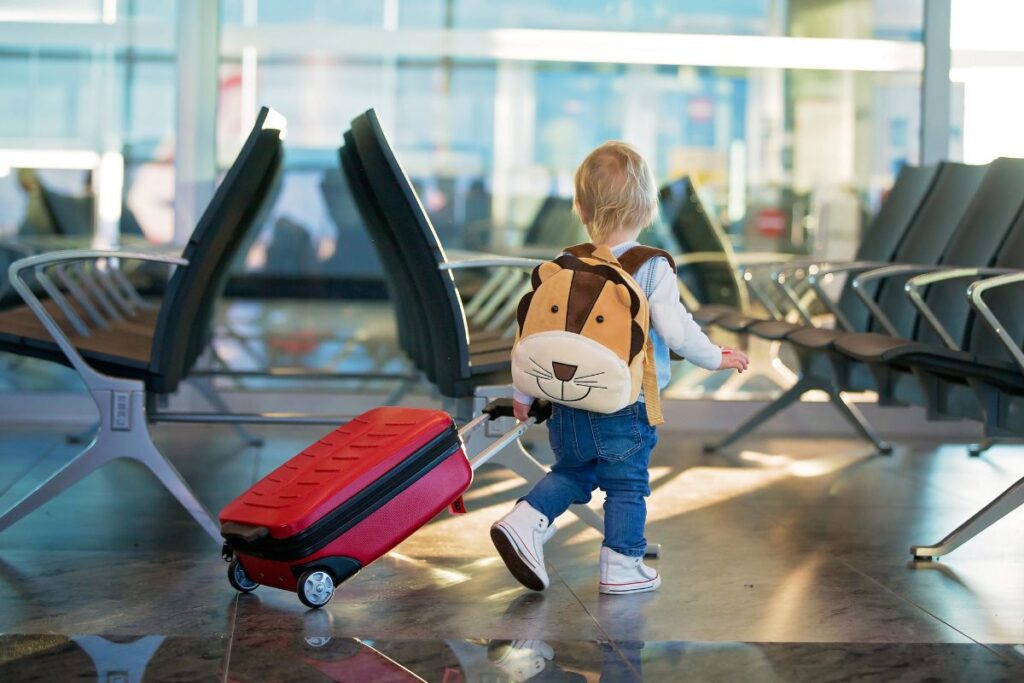The Impact of Travel on Toddler Social Skills

When toddlers travel, every experience—whether it’s meeting new people, hearing different languages, or seeing unfamiliar places—becomes a lesson in connection.
Travel introduces children to diverse environments that naturally encourage interaction and adaptation.
These moments often build social confidence, helping toddlers learn how to communicate, share, and adjust in ways that daily routines at home might not provide.
How Travel Shapes Early Communication
Encouraging Interaction with Strangers
When families travel, toddlers are often surrounded by strangers in airports, hotels, restaurants, and tourist spots.
Even brief exchanges—like smiling at a flight attendant or saying “hello” to another child—help them practice basic social skills in real-world settings.
Unlike playdates where children already know each other, these encounters are spontaneous, requiring toddlers to adapt quickly.
 Exposure to New Languages and Expressions
Exposure to New Languages and Expressions
Hearing different languages or accents can spark curiosity and broaden a toddler’s understanding of communication.
While they may not understand every word, they learn to pay attention to non-verbal cues, such as gestures and tone of voice. This flexibility fosters empathy and the ability to connect beyond spoken language.
Building Emotional Resilience on the Road
Adapting to Change
Travel can be unpredictable—flights get delayed, meals may taste different, and routines shift. For toddlers, these changes present valuable opportunities to build emotional resilience.
When guided with patience, they learn that unexpected events can be handled calmly and that flexibility is a useful life skill.
Handling Social Challenges
Being in new environments also means toddlers face social challenges, such as waiting in lines, sharing toys with children they just met, or sitting through meals in unfamiliar settings.
These experiences, while sometimes frustrating, encourage them to practice patience, self-control, and cooperation—all crucial aspects of social growth.
 The Role of Family in Social Development During Travel
The Role of Family in Social Development During Travel
Modeling Positive Behavior
Parents and caregivers play a central role in shaping how toddlers approach social interactions while traveling.
When children watch adults greet strangers kindly, ask for help politely, or manage stress gracefully, they absorb these social scripts and begin to imitate them.
Creating Safe Spaces for Exploration
Even though travel introduces toddlers to new people, it’s important they feel secure. A parent’s presence provides a safe base from which a toddler can explore social interactions.
Knowing they can return to mom or dad if they feel overwhelmed helps them gain the courage to engage more freely.
 Cultural Awareness and Empathy from a Young Age
Cultural Awareness and Empathy from a Young Age
Seeing Diversity Firsthand
Travel exposes toddlers to a wide variety of cultures, clothing styles, foods, and traditions. These experiences make diversity a normal part of their world rather than something distant or unfamiliar.
Early exposure helps children develop respect for differences and empathy for others.
Learning Through Play and Shared Activities
Simple activities, like playing in a park abroad or joining a local children’s group, show toddlers that play is universal.
Even without speaking the same language, they learn that friendship and fun cross cultural barriers, which enhances their ability to connect with peers in creative ways.
 Supporting Social Growth While Traveling
Supporting Social Growth While Traveling
Balancing Routine and New Experiences
While new adventures are exciting, toddlers thrive when parts of their routine are preserved. Keeping consistent nap times, familiar snacks, or bedtime rituals helps them feel secure.
This balance allows them to embrace social opportunities without being overwhelmed.
Encouraging Reflection After the Trip
Parents can help toddlers process their social experiences by talking about them afterward.
For example, revisiting photos and asking, “Do you remember playing with that little boy at the park?” reinforces positive social memories and strengthens their understanding of relationships and communication.
Travel as a Foundation for Lifelong Social Skills
The benefits of travel extend far beyond the trip itself. The confidence, adaptability, and empathy toddlers gain through these early experiences create a foundation for strong social skills as they grow.
They learn to approach the world with curiosity rather than fear, and they carry forward the lessons of flexibility, kindness, and connection into their everyday lives.
A Journey Toward Lasting Connections
Travel offers more than just beautiful views or family memories—it shapes how toddlers understand and engage with others. By stepping into new environments, they learn to communicate, adapt, and appreciate diversity at an age when social habits are still forming.
With the guidance of supportive caregivers, these experiences transform travel into a powerful tool for nurturing social growth. Ultimately, every trip becomes part of a larger journey—one that leads to lasting connections and a confident, socially aware child.
Did you find this post useful or inspiring? Save THIS PIN to your PARENTING Board on Pinterest! 😊


 Exposure to New Languages and Expressions
Exposure to New Languages and Expressions The Role of Family in Social Development During Travel
The Role of Family in Social Development During Travel Cultural Awareness and Empathy from a Young Age
Cultural Awareness and Empathy from a Young Age Supporting Social Growth While Traveling
Supporting Social Growth While Traveling

You may also like